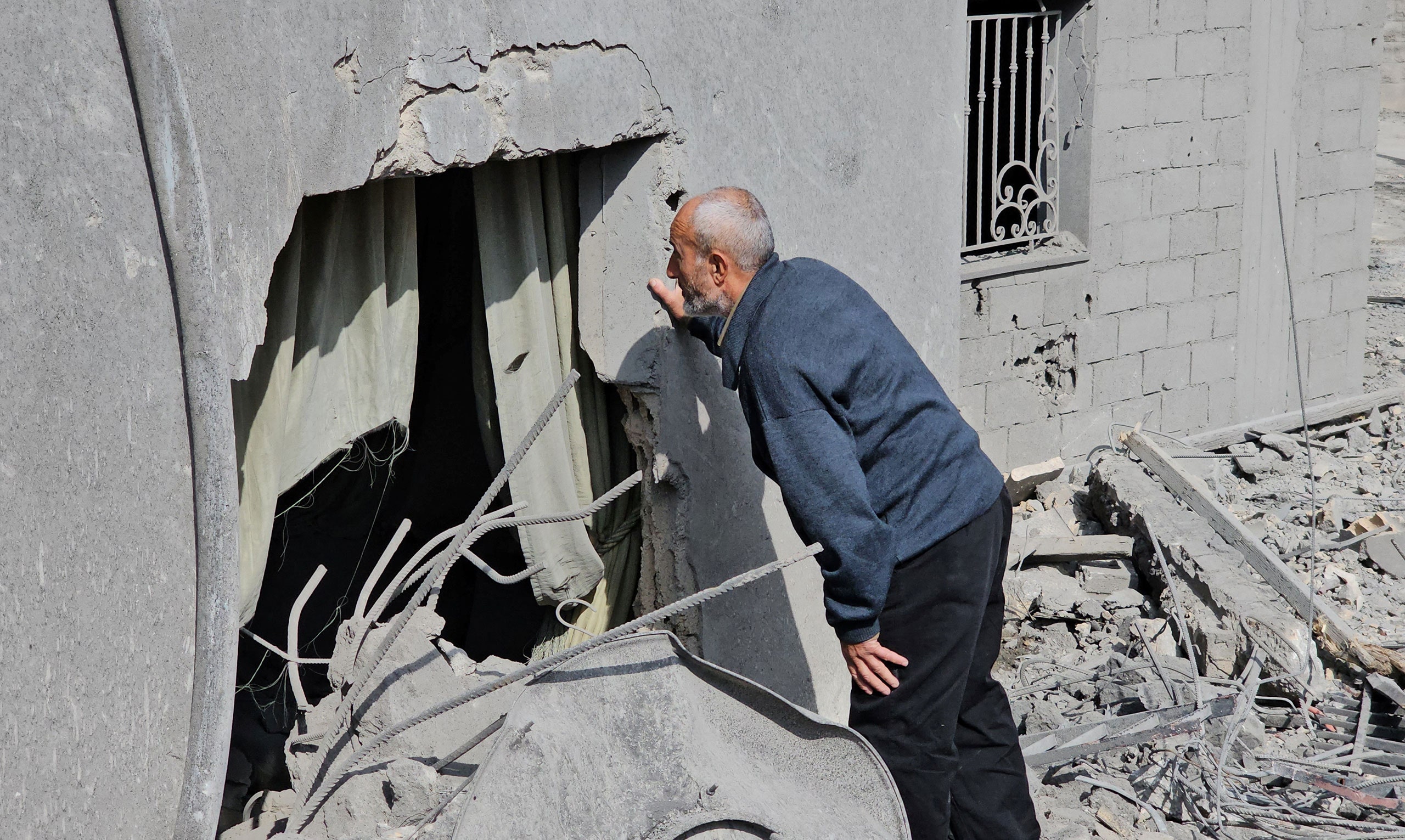Syrian Refugee’s Journey: From Lebanon Back to War-Torn Syria
By an Unknown Author, Fox News Digital
A Decade of Displacement
Ahmed Yahia Dabbas, a 37-year-old father of four, fled the relentless violence of Syria over ten years ago. Seeking safety from the bombardments and airstrikes inflicted by the regime of President Bashar al-Assad and its Russian allies, Dabbas found temporary refuge in Lebanon’s southern suburbs. There, he worked as a doorman and attempted to create a normal life for his wife and children, who range in age from four to nine years old.
Return to Danger
But the fragile peace in Lebanon was shattered in late September when Israeli airstrikes targeted southern Beirut as part of a retaliatory campaign. The conflict’s repercussions pushed Dabbas’s family out of the safety they thought they had found, forcing them to make the heart-wrenching decision to return to Syria.
“We fled Lebanon for the same reasons we fled Syria — to escape bombardment. War followed us,” Dabbas explained in an interview from northwest Syria, aided by translations from the Washington, D.C.-based nonprofit Syrian Emergency Task Force (SETF).
High-Stakes Journey
The family’s escape from Lebanon was fraught with peril. They navigated numerous checkpoints along the Syria-Lebanon border, many manned by regime forces who demanded bribes for safe passage. After successfully entering Aleppo city, they faced even more challenges. They spent a night in a crowded area before navigating to a crossing point between regime-held and rebel-controlled territories.
For three nights, the Dabbas family endured misery in what Dabbas described as “no man’s land.” They suffered mistreatment, faced physical abuse, and encountered severe shortages of food and water, alongside other desperate refugees trying to flee regime control. Once finally on the rebel side, they registered with local authorities and found temporary shelter in Idlib’s northern countryside on October 4.
The Return’s Harsh Reality
Upon arrival in Idlib, Dabbas’ family shared a cramped house with extended relatives who had also endured years of bombings and violence, their hopes of safety continuously dashed. “There is no safety and security,” Dabbas lamented, highlighting the mix of joy at reuniting with loved ones and despair over the ongoing violence in the area.
The humanitarian crisis in northwest Syria, particularly in Idlib, has escalated alarmingly. Reports indicate that drone attacks on civilian areas have intensified, further straining already scarce resources as more individuals are displaced. The United Nations Office for the Coordination of Humanitarian Affairs (OCHA) reports that 3.5 million people are displaced in northwestern Syria, with approximately 2 million living in makeshift camps.
Realities of War: The White Helmets’ Perspective
Ismail Alabdullah, a volunteer with the White Helmets, an organization dedicated to rescuing civilians, shared insights into the ongoing devastation. He noted that the increasing use of suicide drones by Assad’s forces and their allies amplifies the threat to civilian safety.
“These weapons are cheap and can target civilians anywhere—farms, markets, residential areas,” Alabdullah told *Fox News Digital*. He highlighted that 876 attacks had been recorded since November 10 alone.
Children Growing Up in Fear
The violence has plunged families deeper into fear, with many children in displacement camps never having known stability or safety. As winter approaches, the White Helmets are urgently calling on the international community for support. Their capacity to assist the growing number of displaced families is already overwhelmed.
International Concerns
Mouaz Moustafa, executive director of SETF, expressed alarm over the normalization of relations between some Gulf Arab states and the Assad regime. He urged caution regarding reports of European nations considering the deportation of refugees back to Syria. “Syria is not safe,” he emphasized, asserting that no one would choose to return to regime-controlled areas given the risk of violence and repression.
Continued Conflict
The conflict shows no signs of abating, as regime forces, supported by Russia and Iran, ramp up bombing campaigns across western Aleppo and eastern Idlib, leading to further displacement of families. In an unexpected turn, Syrian rebels launched an offensive in Aleppo city for the first time since 2016, advancing into the region despite a ceasefire agreement established in 2020.
Ongoing Struggles
For Dabbas, the fight for survival continues. Despite the relief of being back in Syria, he confronts daily hardships, including food shortages and the struggle to find work in an environment fraught with instability. “Everything needs to stop,” Alabdullah implored, urging global leaders to intervene for the sake of families who need safety and security.
